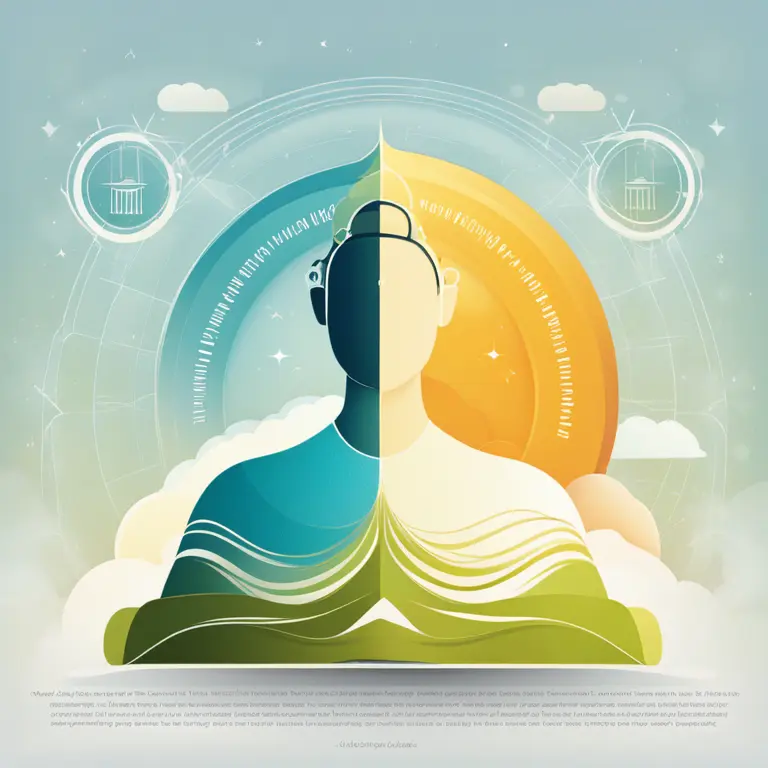
The Impact of Mindfulness Meditation on Anxiety
Discover how mindfulness meditation can be an effective tool for managing anxiety and promoting mental well-being in this comprehensive article.
article by Hina Kurosawa
An Introduction to Meditation and Anxiety
Meditation has been practiced for centuries, but only recently has it entered the mainstream as a recommended method for addressing mental health issues, particularly anxiety. Anxiety, a condition characterized by persistent worry and nervousness, is increasingly prevalent in our fast-paced modern society. Mindfulness meditation is one form of meditation that has shown promise in mitigating the symptoms of anxiety, bringing a sense of calm and focus to those who practice it regularly. As we continue to unravel the complexities of mental health, this article delves into how mindfulness meditation has become a beacon of hope for many struggling with anxiety.

Understanding Mindfulness Meditation
Mindfulness meditation is a mental practice that encourages present-moment awareness without judgment. Rather than fixating on past regrets or future anxieties, mindfulness meditation enables individuals to root their attention in the here and now. By focusing on breathing, bodily sensations, or a meditative object, practitioners learn to observe their thoughts and feelings from a distance, gaining a broader perspective on their mental landscape. This practice fosters a greater sense of control over one's reactions to stressful stimuli and can lead to a more serene state of mind.

Evidence-Based Benefits for Anxiety
Numerous scientific studies have supported mindfulness meditation as an efficacious tool for anxiety reduction. Research indicates that engaging in mindfulness meditation can lower cortisol levels—the hormone associated with stress—and can rewire neural pathways in the brain, enhancing emotional regulation. Additionally, mindfulness practices are associated with reductions in the symptoms of common anxiety disorders, such as generalized anxiety disorder (GAD) and social anxiety disorder. Health professionals are increasingly recognizing these benefits and incorporating mindfulness techniques into therapeutic programs.

Incorporating Meditation into Daily Life
Despite its effectiveness, mindfulness meditation doesn't require extensive training or time commitments. It can be practiced anywhere, from a quiet room to a bustling metro station. Starting with just a few minutes each day, individuals can gradually extend their practice as they become more accustomed to maintaining focus. There are various resources available, including apps, online courses, and group classes, that can guide newcomers through the basics of mindfulness meditation and help integrate this practice into daily life.

Challenges and Considerations
Although mindfulness meditation can be beneficial, it's important to note that it may not be suitable for everyone. Some individuals may find it difficult to engage with their thoughts in such an intimate manner, especially if they have experienced trauma or severe anxiety. In these cases, it is advised to consult with a mental health professional before beginning a mindfulness practice. Tailoring the meditation experience to suit personal needs and limitations is key to ensuring that it remains a positive and healing practice.
Mindfulness as a Complementary Practice
While mindfulness meditation is powerful, it is often most effective when combined with other therapeutic interventions, such as cognitive behavioral therapy (CBT) or medication. It's a complementary practice that can enhance overall treatment plans, helping to build resilience against future bouts of anxiety. Furthermore, mindfulness encourages patients to be active participants in their recovery journey, reinforcing a sense of autonomy and self-efficacy.
The Future of Mindfulness and Mental Health
With the surge in digital health technologies and a growing body of research, the future of mindfulness meditation is promising. Innovations in virtual reality (VR) and artificial intelligence (AI) are opening new avenues for immersive meditation experiences, making it more accessible and personalized. As we move into 2024 and beyond, it's likely that mindfulness meditation will continue to be a cornerstone for mental health self-care, with a potential to transform lives by alleviating anxiety and promoting inner peace.
Published: 1/18/2024
Modified: 1/18/2024
More predictions
Come back here soon to learn more about yourself and your future


Easing Anxiety Through Mindful Meditation
Discover how mindful meditation can be a serene gateway to relieving anxiety, fostering a peaceful mind, and promoting overall well-being.


Can Meditation Impact On Depression?
Meditation can be a powerful tool for mental health. Discover whether incorporating a meditation practice can alleviate depressive symptoms.


How Meditation Reshapes Our Brains
Discover the transformative power of meditation and its profound impact on brain structure and function in this insightful article.